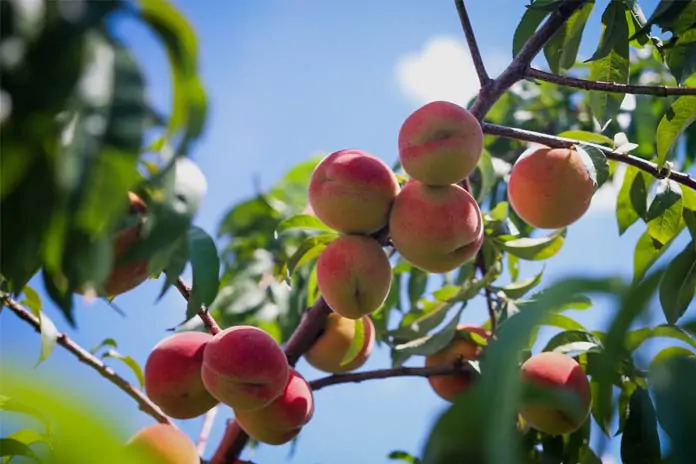You can satisfy your craze for a sweet tooth with health-friendly Low Fructose fruits. Fruits are a vital source of energy. They also have vitamins, minerals, and fibers. A high Fructose diet can lead to serious health issues. Living a healthy life is a dream for all but, unfortunately, it does not come true for everyone. High Fructose is one of the main reasons for tooth decay and diabetes. Consuming low-fructose fruits reduces the risk to a great extent. In this article, we will take a deep view of consuming fruits and keeping the balance of sugar. Get ready for a new healthier lifestyle with fruits!
What is Fructose?
Fructose is a type of Carbohydrate which is used as an energy source by our bodies. It is naturally found in fruits, honey, and some vegetables. It is used as a sweetener in processed foods and beverages. More importantly, excessive intake of fructose leads to negative health outcomes such as obesity, diabetes, and fatty liver. It is important to note that we need to be careful about its intake.
Needs and risks of Fructose
Low-Fructose Fruits are those fruits that have a relatively low amount of fructose. Compared to high-fructose fruits, low-fructose fruits have a balanced sugar content which makes them a better option for an individual who is conscious of high sugar intake. Consuming low-fructose fruits means taking a diet that is rich in vitamins, minerals, antioxidants, and fibers.
Taking a low fructose diet has been associated with a number of health benefits including good digestion, lesser inflammation, low risk of diabetes, and even lower risk of heart diseases. It also improves the body’s immunity as many low-fructose fruits have high amounts of vitamin C. Fruits like Berries, melons, plums, peaches, papaya, kiwi, and citrus fruits have low fructose. Making a habit of eating these fruits will improve your overall health and well-being. Enjoy eating delicious and nutritious fruits.
Which fruits are low in fructose?
The following fruits are low in fructose but they should also be taken in moderate amounts as part of a healthier life.
- Berries (such as strawberries, raspberries, blackberries, and blueberries)
- Melons (such as watermelon and honeydew)
- Stone fruits (such as peaches, plums, and nectarines)
- Pineapple
- Kiwi
1. Pineapple
It is a tropical fruit that is known for its sweet and tangy taste. It is also packed with nutrients that offer a wide range of health benefits. It helps in improving the immune system, and digestive system, and has anti-inflammatory effects.
| Botanical Name | Ananas comosus |
| Origin | South America |
| Preferred Zone | 60-95°F (16-35°C) |
| Size of tree | Pineapple is a 5-foot-tall herbaceous perennial, not a tree. |
| Exposure | Full Sun |
| Soil | Soil with a pH of 4.5-6.5 |

Nutritional Information:
Here is some nutritional information about the Pineapple.
One cup (165 grams) of fresh pineapple chunks contains:
| Calories | 62 |
| Carbohydrates | 21.7 g |
| Fiber | 2.3 g |
| Protein | 0.9 g |
| Fat | 0.2 g |
| Vitamin C | 105% of the daily use |
| Vitamin B6 | 9% of the daily use |
| Potassium | 5% of the daily use |
2. Kiwi
It is a small, fuzzy fruit that is packed with nutrients and health benefits. Kiwi helps in improving eye health and skin health. It also helps the immune system to work smoothly. It is an energy-rich fruit that offers numerous health benefits.
| Botanical Name | Actinidia deliciosa. |
| Origin | Native to China. |
| Preferred Zone | The soil of pH between 5.0-6.5 |
| Size of tree | 30 feet (9 m) in length. |
| Exposure | Full sun exposure. |
| Soil | Soil of pH between 5.0-6.5 |

Nutritional Info:
- One medium-sized kiwi (69 grams) contains:
| Calories | 42 |
| Carbohydrates | 10 g |
| Fiber | 2 g |
| Protein | 1 g |
| Fat | 0.4 g |
| Vitamin C | 64% |
| Vitamin E | 3% |
| Folate | 3% |
3. Watermelon
is a delicious fruit. It is full of nutritional and health benefits. It keeps a person hydrated and refreshed. It is rich in minerals, vitamins, and water. It has also anti-inflammatory properties.
| Watermelon Botanical Name | Citrullus lanatus |
| Origin | Africa |
| Preferred Zone | Zones 4-11 |
| Size of tree | Trailing vine 6-8 feet (1.8-2.4 m) in length |
| Exposure | full sun exposure |
| Soil | pH 6.0-6.8 |

Here is the nutritional information for one cup (152 grams) of diced watermelon:
| Calories | 46 |
| Carbohydrates | 11.6 mg |
| Fiber | 0.6 mg |
| Protein | 0.9 mg |
| Fat | 0.2 mg |
| Vitamin A | 12.5 mg |
| Potassium | 170 mg |
| Magnesium | 15 mg |
4. Peaches
They are rich in vitamins and minerals. Peaches are a good source of vitamins A, C, and E, which are important for skin health, immune system, and eyes sight. They also contain potassium, which helps to regulate blood pressure and prevent muscle cramps. They are also high in fiber which is good for promoting healthy digestion and preventing constipation. Fiber also helps to keep you feeling full, which can aid in weight management.
| Peaches Botanical Name | Prunus persica |
| Origin | China |
| Preferred Zone | Zones 5-8 |
| Size of Tree | Height 10-20 feet (3-6 m) and a spread of 8-20 feet (2.4-6 m) |
| Exposure | Full sun exposure |
| Soil | 6.0-7.0 pH |

One medium-sized peach (147 grams) contains the following nutrients.
| Calories | 60 |
| Carbohydrates | 15 mg |
| Fiber | 1 mg |
| Vitamin E | 1 mg |
| Niacin | 1.5 mg |
| Potassium | 285 mg |
| Vitamin A | 1 mg |
| Vitamin C | 10.6 mg |
5. Strawberries
Strawberries are an excellent source of vitamin C, which is important for skin health, immunity, and wound healing. They also contain folate, potassium, and manganese, which are important for overall health. They are rich in antioxidants, such as anthocyanins and ellagic acid, which can help to protect against cellular damage and decreases the risk of chronic diseases like cancer and heart disease.
| Strawberry Botanical Name | Fragaria x ananassa |
| Origin | Europe |
| Preferred Zone | zones 3-10 |
| Size of Tree | 6-12 inches (15-30 cm) |
| Exposure | Full sun exposure |
| Soil | PH 5.5-7.0 |

Below is the nutritional information on strawberries;
| Calories | 49 |
| Carbohydrates | 12 g |
| Protein | 1 g |
| Fats | 0.5 mg |
| Potassium | 233 mg |
| Magnesium | 18 mg |
| Folate | 40 mg |
| Vitamin C | 97.6 g |
Are all fruits equal?
Fruits and naturally manufactured rich sources of energy. Eating fruits is essential for maintaining good health, but not all fruits are created equal. For people with fructose intolerance or malabsorption, high-fructose fruits can cause discomfort in your digestive system. That is why it’s important to choose low-fructose fruits that are not only easier to get digested but also packed with essential nutrients.
What are the benefits of eating low-fructose fruits?
Eating low-fructose fruits can help to promote weight management and prevent obesity. Eating low-fructose fruits can help to reduce inflammation and lower the risk of chronic disease. It can help to regulate blood sugar levels and prevent sudden spikes. low-fructose fruits can help to support the growth of healthy gut bacteria and improve overall digestive health.
Conclusion
You can always enjoy eating fresh low fructose fruits. They have no side effects. They always help you boost your energy and refresh your mood. Moreover, low-fructose fruits can be used by diabetics as well.
Serve fresh and mouth-watering fruits!


